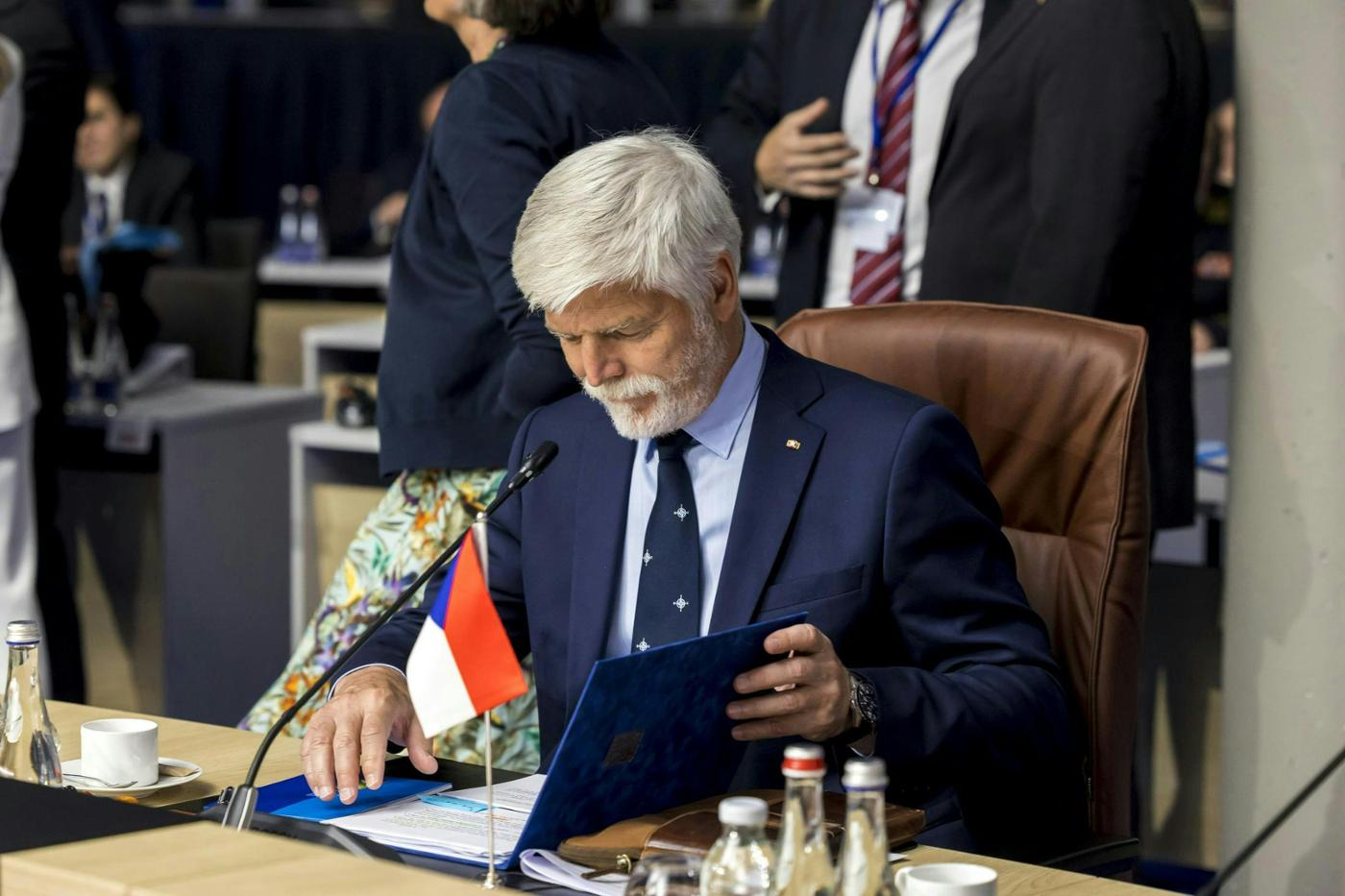This year we are commemorating the 25th anniversary of the Czech Republic’s accession to NATO, which marked a watershed moment on the path to ensuring our national security.
We are a country with tragic historical experience related to the expansionism of our neighbours, both close and further afield; the wheels of foreign armoured vehicles repeatedly trampled our land and our hope of a free and independent life. In the twentieth century, we stood alone against Nazi and Soviet aggression. For us, the years 1938 and 1968 marked the beginning of deeply traumatising and humiliating periods.
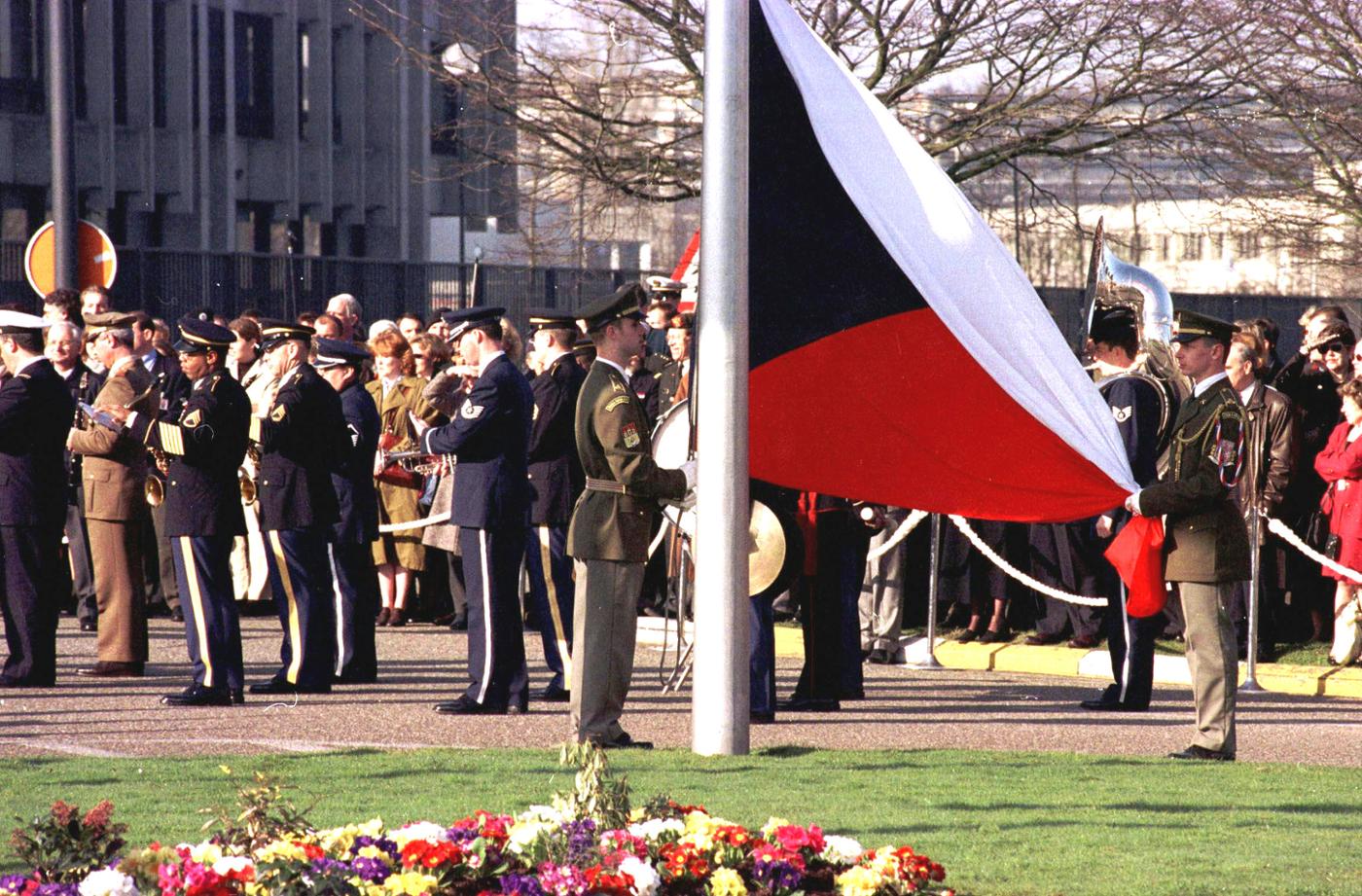
The Czech flag is raised at NATO Headquarters for the first time to mark the accession of the Czech Republic to NATO, 16 March 1999, Brussels, Belgium. © NATO
Joining NATO gave not only Czechia but also all of Central and Eastern Europe the greatest guarantee of security in its entire history. The family of countries united in the Alliance share more than an interest in the security of Europe and North America; in the words of Article 2 of the North Atlantic Treaty, they are also dedicated to “strengthening their free institutions” and thus contributing to “the further development of peaceful and friendly international relations”. Joining NATO therefore unequivocally helped to anchor our values. It was a fitting end to a story that included the trauma of the Munich Agreement, the seemingly futile hope of many Czechs and Slovaks for our country to develop freely - but also the fall of the Communist regime and the subsequent withdrawal of the occupying Soviet troops. The Alliance, too, wrote its own story; by opening up to the states of Central and Eastern Europe, it proved its ability to respond to changes in the international setting and to take on a new security role.
In light of the aggressive intentions of Russian President Vladimir Putin’s regime - which does not conceal its interest in renewing Russia’s sphere of influence in Europe - it is now clearer than ever before that membership in the Alliance is of utmost importance. Its primary mission of common defence is again coming to the fore. None of us can face a hostile Russia alone. For 30 years, we had no real threat to consider, and we enjoyed the peace dividend. European countries saw their military capacity fall, yet NATO remained parametrically more powerful than Russia, in military terms, due to great economic strength.
We must maintain NATO’s internal cohesion so that we do not lose this advantage. The Kremlin is, of course, aware of these conditions, which is why it is intensifying its long-term hybrid actions against European democracies. We too must modernise - and rapidly. We must increase the capacities of the defence industry and strengthen the armies of individual Allies.
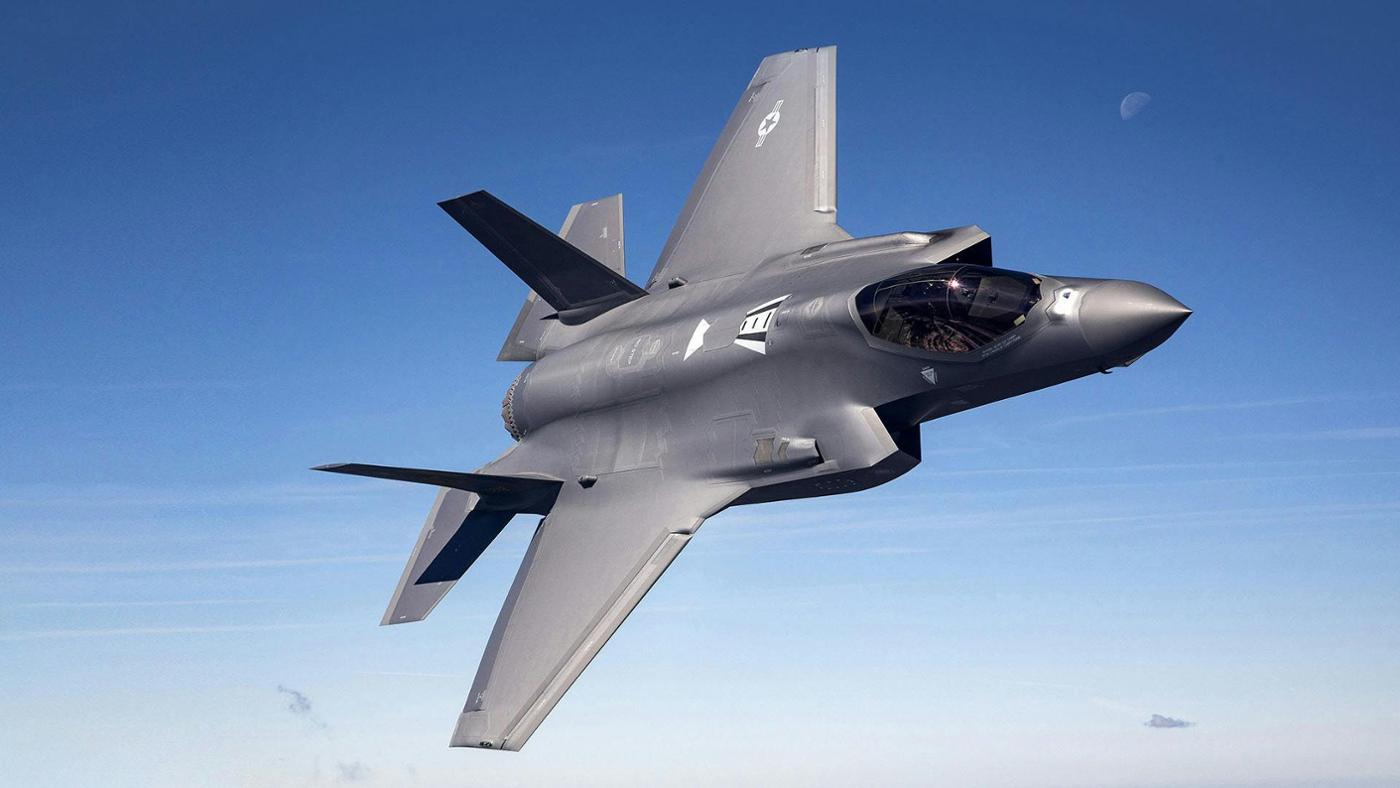
It is important to modernise, increase the capacity of the defence industry and strengthen the armies of individual Allies. The Czech government has recently formalised its commitment to acquire 24 F-35 Lightning II jets. Picture © Lockheed Martin
We have three essential tasks ahead of us:
- Immediately increase industrial production in practically all key segments of the defence industry;
- Expand the real combat capability of individual European armies and, in doing so, rigorously apply the innovations and experience from Ukrainian battlefields, particularly regarding autonomous systems;
- Stand strong against the Kremlin’s information operations, which are interested in precisely the opposite outcome.
In regards to these three essential tasks, we should emulate the approaches of countries like the Baltic states, Poland and Finland, which are leading the way, motivated by their geographical proximity to Russia. In a globalised world, the assumed distance of Central European and Western countries from the next potential site of Russian aggression must not provide us with a false sense of security.
One for all and all for one
Any increase in Russian aggression would impact all NATO countries, albeit to varying degrees. It would be irresponsible for public officials to downplay this threat. This is not about giving in to fear. It is about taking our domestic tasks seriously and strengthening the European contribution to transatlantic security. In this regard, defence spending is the most rational of investments. Security is the prerequisite for our society’s freedom, prosperity and fullness of life. The old Three Musketeers’ motto of “One for all and all for one!” also holds in the Alliance. Alone, nobody can face the threats from global autocracies, united in their opposition to international law and to the right of smaller nations to decide freely about their own affairs.
It is evident that contemporary populism, nourished by the deluge of disinformation frequently managed by countries hostile to us, is revivifying the ancient demons of nationalism. Our common task, once again, is to close the floodgates against those demons, motivated by the rules of international order and our Allied obligations.
The importance of NATO for Czechia
The transformation of the Czech military into the army of a democratic state, an army that is fully professional and interoperable with the armies of the Allies, began 30 years ago and was not even remotely simple. Thoroughly changing the internal culture of the armed forces took great effort and commitment. It also required recognition that an essential precondition for membership in NATO would be the provision of sufficient resources for defence. We accelerated the crucial process of modernising obsolete, defunct equipment and armaments by committing to spend 2% of GDP on defence. Unfortunately, we have long neglected this commitment, so spending temporarily fell to 1% of GDP. There was a significant increase in spending following Russia’s full-scale invasion of Ukraine, which fundamentally deteriorated the international security environment. I am delighted that, since 2023, the requirement to spend 2% of GDP is now enshrined in Czech law.
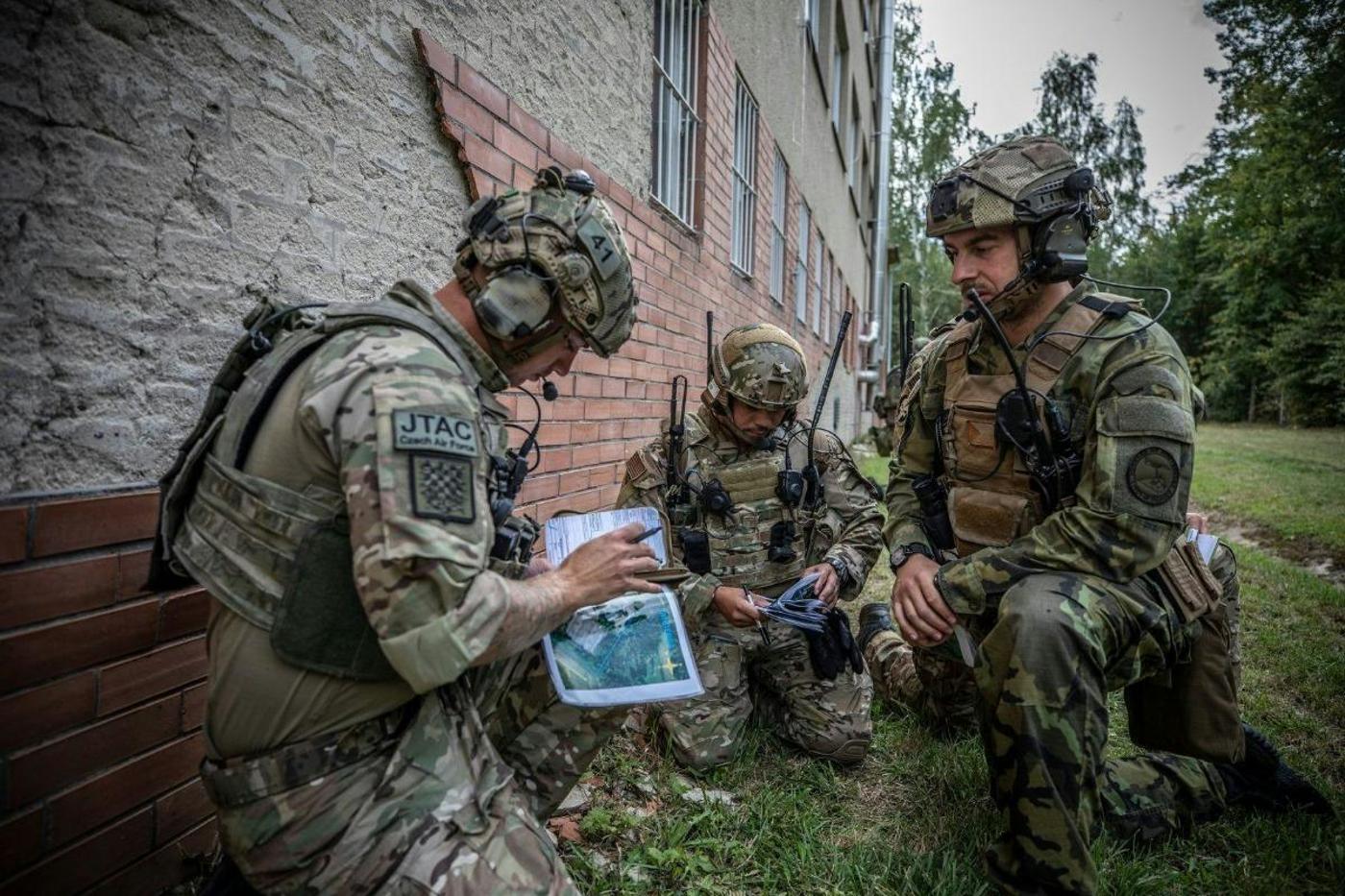
Czechia is actively involved in a collective defence system and contributes to developing the Alliance’s capacities. Czechia’s armed forces are involved in NATO activities aimed at both deterring enemy attacks and preparing and leading operations. Pictured: Czech Joint Tactical Attack Controller team during map orientation in exercise Ample Strike 2019.
© NATO AIRCOM / Sarah Schulte
Today, as part of NATO, Czechia is actively involved in a collective defence system and contributes to developing the Alliance’s capacities. We are systematically deploying Czechia’s armed forces in NATO activities aimed at both deterring enemy attacks and at preparing and leading operations. In the event of an attack or when meeting international obligations on common defence, the main mission of Czechia’s armed forces is the ability to conduct, in partnership with our Allies, a long-term, high-intensity military conflict against a technologically advanced adversary, both within Czechia and elsewhere.
Our membership has also enhanced the Czech army’s development by involving it in foreign missions and operations in which we were previously unable to take part. Another significant benefit was gaining combat experience side by side with our Western partners, which also meant implementing Western operational procedures and creating interoperability, both technical and psychological.
NATO enlargement
Every time the Alliance welcomes a new Ally, it logically entails a more complex alignment of the interests of a larger number of members. But at the same time, it also increases NATO’s combat effectiveness. The exceptionally technologically advanced Swedish army and the well-trained and tenacious Finnish army represent a fundamental increase in NATO’s real capabilities. Therefore, I very much welcome the admission of Finland and Sweden as contributors to our collective security. This is true not only in terms of traditional military capabilities, but also in regards to new technological challenges. A cyber-attack or hybrid actions at a level comparable to kinetic military action may trigger Article 5 for collective defence. We should not forget that cyberspace has become an operational domain in addition to air, land, sea and space.
New technologies
Not only do we face a significant challenge in the absolute necessity of defending Ukraine, but we must also realise that we face old enemies – authoritarian regimes – on a changed battleground. Future operational environments will be fundamentally different from those we see today. Unmanned and increasingly autonomous combat systems with extremely fast decision-making processes will force antiquated systems, and human beings, from the battlefield. In the future, the Alliance will need to focus on combined capabilities in order to win in a conflict, but it will also need to maintain a qualitative advantage.
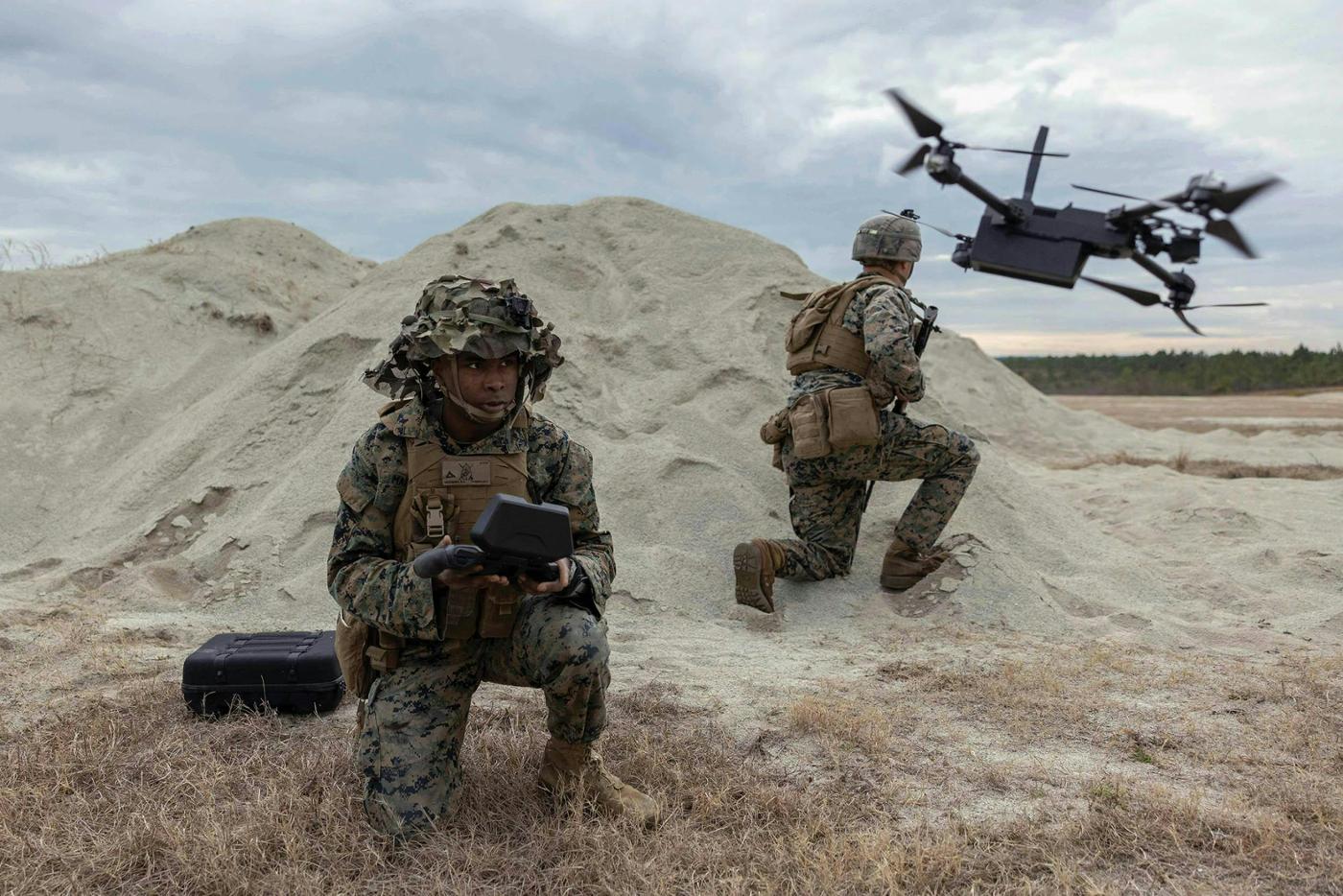
Unmanned and increasingly autonomous combat systems with extremely fast decision-making processes will force antiquated systems, and human beings, from the battlefield. The US Marine Corps flies an unmanned aircraft system on Camp Lejeune, North Carolina, 17 January 2023. © US Marine Corps / Michael Virtue
And however fundamental the Russian threat, we must not ignore Europe’s neighbours. The Sahel, North Africa and the Middle East are key regions whose stability, or otherwise, has and will continue to have a significant impact on the international community.
The future of international security in the Euro-Atlantic space
The unprecedented change in how we view the security situation in the entire Euro-Atlantic space is reflected in the actions and the thinking of the Alliance’s members. We are witnessing an increase in defence budgets and the intensification of military and financial aid to Ukraine. Russia will evidently continue to constitute the main threat not only to Europe, but also to world order. NATO must now do everything in its power to ensure that European security architecture and transatlantic bonds are not weakened. Deterrence and defence, crisis management and prevention and cooperative security remain crucial tasks for the future. However, we Europeans also have the responsibility of convincing our North American Allies that Europe takes security issues very seriously and is determined to do the utmost to maintain a strong Alliance, including shouldering its fair share of the costs of supporting NATO as a whole.
The forthcoming NATO summit in Washington D.C. will be a unique opportunity to show the world the Alliance’s abilities to respond to modern threats and challenges. We must be extremely well prepared and highly determined; we need unity across the whole Alliance and, foremost, we need to be aware that the principle of “One for all and all for one!” holds only in an environment of trust. We must not miss this opportunity!

